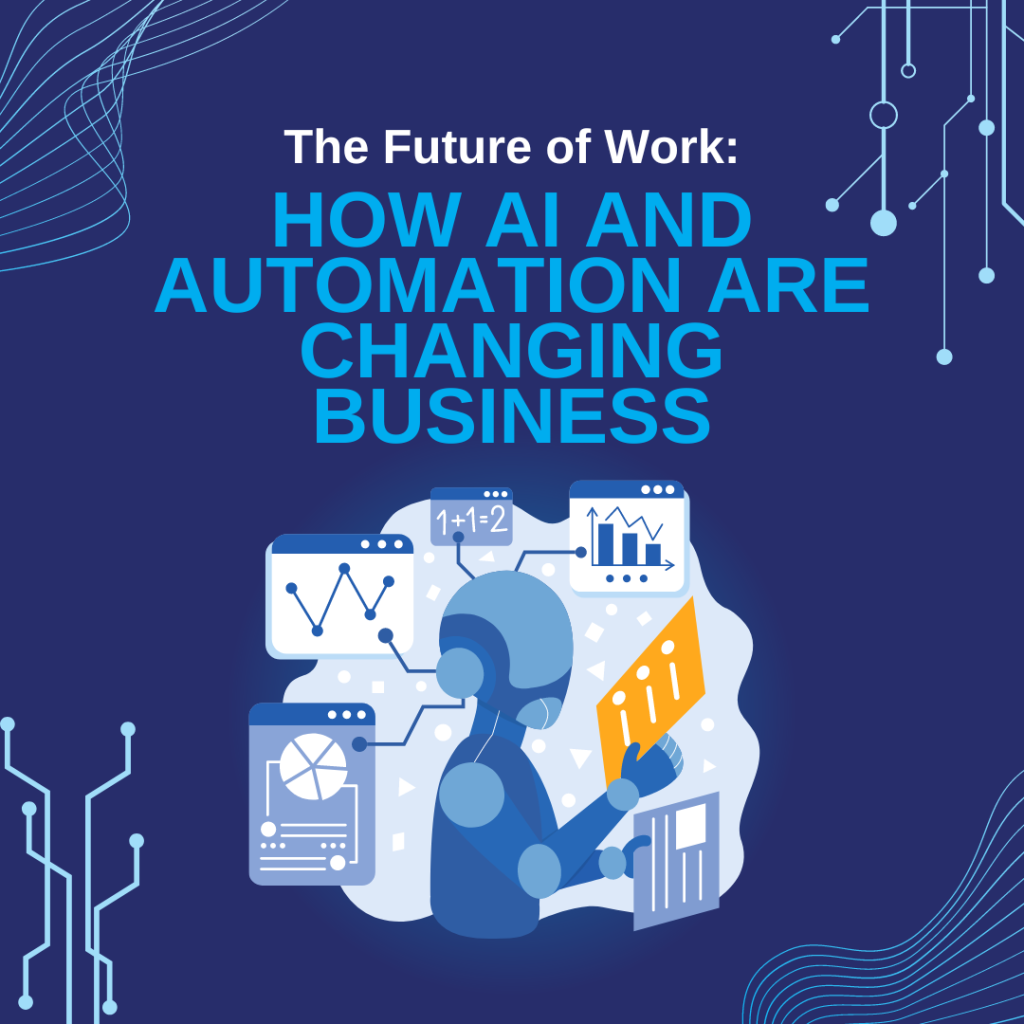By: Dr. Daniel Zimmerman
As advancements in Artificial Intelligence (AI) and automation continue to accelerate, businesses across every sector are witnessing a profound transformation in their operations. Integrating these technologies is not just about efficiency—it’s about reshaping entire industries, creating new opportunities, and redefining the skills required in the workforce of tomorrow.
How AI and Automation Are Reshaping Industries
AI and automation are no longer buzzwords but essential tools driving innovation and efficiency. In manufacturing, robots and AI-powered systems now perform tasks that once required human hands, enhancing precision, reducing errors, and increasing productivity. In retail, AI-driven customer service chatbots and personalized shopping experiences are redefining how companies engage with consumers. Meanwhile, sectors like healthcare are leveraging AI for diagnostics and treatment recommendations, improving patient outcomes while reducing costs.
Industries such as logistics and transportation are seeing significant shifts due to automation. Self-driving vehicles and automated supply chain management are making operations more streamlined and cost-effective. Even creative industries are evolving—AI tools can now generate written content, design prototypes, and even compose music, pushing the boundaries of what machines can do.
New Job Opportunities in an Automated World
While AI and automation are transforming business operations, they also create new roles and job opportunities. Contrary to fears of widespread job losses, automation is paving the way for new career paths in data analysis, machine learning, AI programming, and system management. Workers will increasingly find themselves in roles that require collaboration with AI technologies—developing, managing, and improving these systems.
For instance, data scientists and AI specialists are in high demand as companies collect and analyze massive amounts of data. Cybersecurity experts are also crucial, as automation expands the need for securing networks and protecting sensitive information. Additionally, there is a growing demand for professionals who can integrate AI tools into business strategies, helping organizations harness the potential of these technologies to drive growth.
The Skills of the Future Workforce
As the workplace evolves, so do the skills necessary to succeed. The future workforce must be adaptable, continuously learning, and growing alongside technological advancements. Technical skills such as coding, data analysis, and machine learning will be highly valued, as will soft skills like creativity, emotional intelligence, and problem-solving.
While machines can handle repetitive tasks and data processing, human workers will be needed to make critical decisions, interpret complex data, and provide the creativity and innovation that machines cannot replicate. Emotional intelligence, in particular, will become increasingly important as automation takes over more routine functions. Professionals who can effectively manage teams, lead innovation, and build relationships will be critical in navigating this new landscape.
Preparing for Tomorrow’s Workforce Today
For business and technology students, staying ahead of these trends is key to future success. It’s not just about learning new tools and technologies—it’s about integrating them into business strategies and adapting to an ever-changing work environment. Lifelong learning and upskilling will be crucial, as professionals need to keep pace with technological advancements and the evolving demands of their industries.
At ˿����Ƶ’s School of Business and Technology, we are committed to equipping students with the skills they need to thrive in this new era. Our Master of Science in Innovation and Technology and Doctorate of Science in Computer Science programs focus on the latest trends, ensuring that graduates are prepared to lead in a tech-driven world.
The future of work is here, and AI and automation are at the forefront of this transformation. While these technologies are reshaping industries and creating new opportunities, they redefine the skills and roles that will drive tomorrow’s economy. By embracing these changes and committing to continuous learning, today’s professionals can adapt to this new landscape and thrive in it.
Now is the time to prepare for the future—and ˿����Ƶ is here to help you every step of the way.

